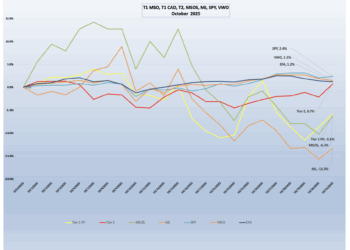Numerous cannabis and cannabis-adjacent companies that received Paycheck Protection Program (PPP) loans during the pandemic are reportedly getting anxious about an increase in government scrutiny of those loans in the wake of a March settlement between the Department of Justice and a holding company that managed the licensing for Bob Marley’s cannabis brands.
The case, U.S. v. Docklight Brands Inc., was filed in the Western U.S. District Court of Washington in September 2022. Both sides reached a settlement in March 2024, where Docklight agreed to repay $989,000 – the original loan plus a matching fine, according to a press release from the U.S. Attorney’s Office for the Western District of Washington. While other companies have had to repay loans for various types of fraud, this marked the first settlement over the defendant’s involvement in cannabis.
Docklight originally held the licensing rights to the Marley Naturals brand from Bob Marley’s estate, which were transferred to Tilray Brands Inc. (TLRY). The deal with Tilray collapsed over changing royalty rates, and Docklight landed in Washington State Superior Court where it was placed into receivership. At the same time, the company came under fire for a PPP loan it received in 2020. Marley’s estate eventually broke its deal with Docklight in April 2023.
Cases that target potentially improper federal loans, known as qui tam lawsuits under the False Claims Act, are not instigated by the U.S. government. Rather, private third parties start the investigative process, and if they gather enough proof, then the U.S. Department of Justice may agree to intervene. The instigator, known as the “relator,” can receive up to 30% of the fine in cases where the DOJ is successful. In Docklight’s case, a medical data company Sidesolve LLC, served as relator and plaintiff. Sidesolve was awarded over $148,000 for their role.
With the enticement of a cut of the proceeds and a precedent for legal success, more cannabis companies are getting civil investigation demands in cases filed by relators. A spokesperson for the Department of Justice said she had “no idea” whether there were additional cannabis-related PPP fraud cases under investigation, but others in the industry have heard otherwise.
Non-cannabis touching companies being investigated
“I have heard from more than a few law-abiding businesses that do not handle cannabis who report being investigated,” said Aaron Smith, co-founder and CEO of the National Cannabis Industry Association. “These businesses were simply serving state-licensed cannabis providers, just as many CPAs, attorneys, contractors routinely do in the vast majority of states which allow for legal cannabis commerce – many of which declared the cannabis industry essential during the pandemic.”
Hilary Bricken, a partner at Husch Blackwell that specializes in cannabis law, said she was not aware of any current investigations into cannabis companies for alleged PPP loan abuse beyond the Docklight case, but she noted that the case has a lot of PPP loan recipients on edge.
“I have a bunch of nervous clients, though, that are asking me what they should do to prepare, what defenses are available to them, etc.” she said through email.
Sidesolve, which uses computer analysis to find potential cases of PPP fraud, has served as a relator in at least seven qui tam federal cases, according to a plaintiff search in the federal court database Pacer. Typically when a company files qui tam lawsuits, those cases remain sealed until shortly after the U.S. government decides whether or not to get involved. The Sidesolve cases listed in Pacer are the only ones that have been unsealed, so far.
Jason Marcus, a partner at Bracker & Marcus who has represented Sidesolve in numerous qui tam claims, was unwilling to say whether his client had filed any additional cases, cannabis-related or not, because those claims would all still be sealed.
That said, Marcus noted he has heard anecdotally that there are other cannabis companies that have received civil investigation demands, which is essentially a precursor to actual charges being filed.
“There definitely are cases. I just don’t know how many,” said Marcus. “I compare it to the Gold Rush out in California. Once we struck gold with one marijuana case, it sort of signaled to all the other relator councils and the data miners that SBA (Small Business Administration) is open for business on marijuana cases.”
PPP loan fraud slowly grabs legal attention
The Paycheck Protection Program was created in 2020 at the start of the Covid-19 pandemic. The $953 billion program was intended to provide loans to employers to cover payroll expenses and keep people employed. By design, almost all of those loans were forgiven.
“That program was set up so quickly and the regulations are so shoddy. It wasn’t very clear always, especially back in the pandemic, what was allowed and what was not allowed. And, the SBA gave a lot of leeway to certain industries,” said Marcus.
The SBA oversaw the program, and in early 2021, it released data on which companies received PPP loans, as well as whether or not they were forgiven. This opened the door for independent companies and attorneys to scour the data for evidence of potential fraud.
The SBA’s guidelines specifically state that companies that engage in federally illegal activity, such as making money off of cannabis, were ineligible. Companies that indirectly profit from the cannabis industry were also ineligible, but that standard was never further defined. In the case of Docklight, the company owned a subsidiary, Royale Leisure Industries LLC, which had a license to manufacture and process cannabis from Washington state that was surrendered when the subsidiary closed in 2019, before the PPP loan program was announced.
So it remains unclear whether a company would be ineligible if it provides track and trace service to cannabis companies, such as Metrc and Akerna, the former owner of MJ Freeway, which borrowed $980,000 and $2.2 million respectively; advocates for the industry, such as the National Cannabis Industry Association ($232,000) or the Marijuana Policy Project ($124,000); or reports on the industry, such as Anne Holland Ventures, the former owner of Marijuana Business Daily, that took out a $2.4 million loan.
Every example listed above received a PPP loan according to SBA data.
An examination of the data by CRB Monitor found at least three licensed adult-use cannabis retailers received loans, though there has been no word on whether they’re facing legal action. Each received relatively small loans under $100,000. None of the dispensaries responded to requests for comment.
“It was like every company in the country that was small was filing these loans and the banks were doing their best to turn them out as quickly as possible and the oversight was limited,” said Marcus. “There are very few companies that I think stuck out and were refused, originally. Frankly, if you were rejected by one bank, you went to another.”
“I think it’s very clear if you’re a dispensary and you got a loan, you’re in trouble and you’re going to need to pay that back. You should probably do it voluntarily before a relator finds that and files a case against you,” said Marcus. “I think the intent is if you’re making all your money off this industry, that’s when you should be looking into them. But even then, you don’t know where the government’s gonna draw that line.”











